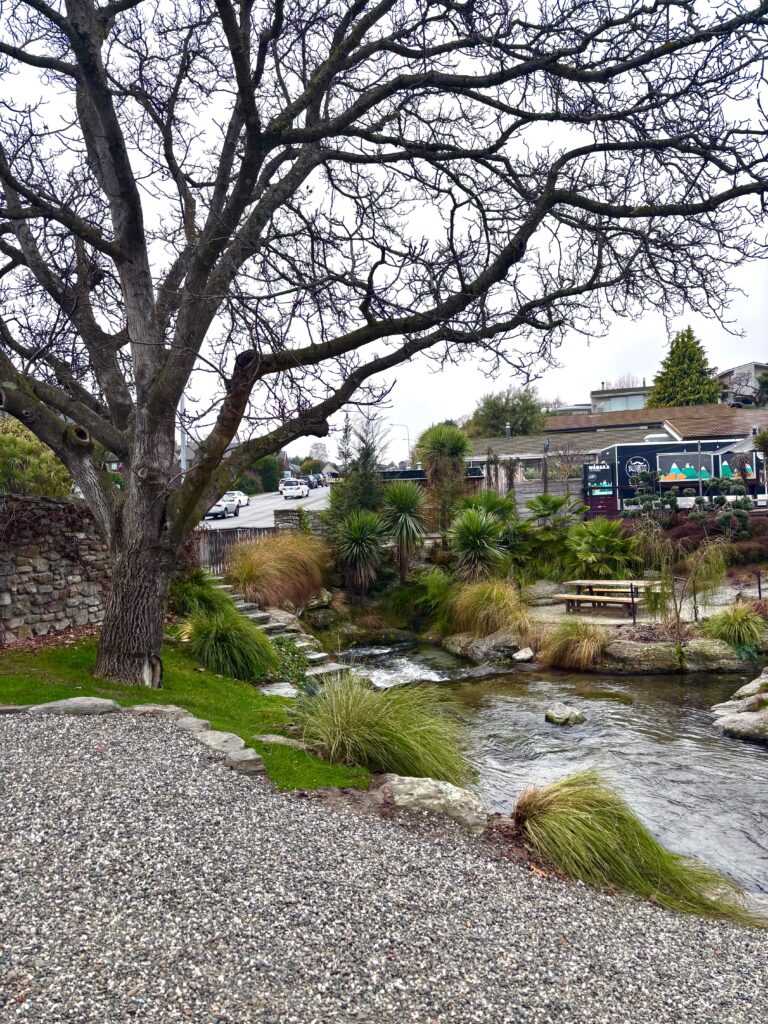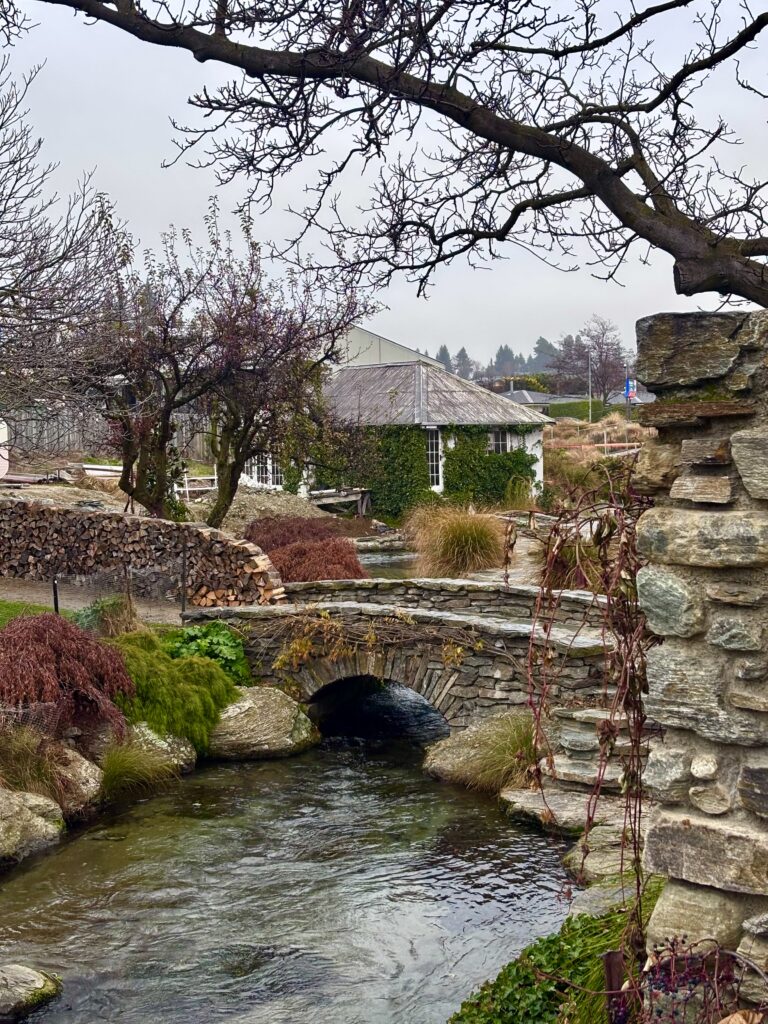Shravan Sandhya 🌧️🌿
श्रावणमासी हर्षमानसी हिरवळ दाटे चोहीकडे।
क्षणात येते सरसर शिरवे, क्षणात क्षणात फिरूनी ऊन पडे।
Loose poetic translation:
In the month of Shravan, your mind is happy
There’s greenery all around;
In a moment, raindrops start falling;
In the next, it’s sunny all around.
The season when rain and sun share a playful dance and rainbows adorn the sky, you know it’s different than the other seasons that have gone by. It’s a time to cleanse our body and soul, and fill our minds with happy thoughts. To focus on prayer and good health. And to enjoy simply being!
Surround yourself with healthy food, soak your mind in good thoughts, and walk with good vibes!
August blessings coming your way along with the latest edition of Wisdm Insider! Read On…
Interview with the Stars
On last month’s Insider, we brought back the much beloved section that delectably adorned our previous insider editions: Interviews with people from the Wisdm team! (If you haven’t read Ishwar’s interview, you should check it out)
Every month, we’ll feature 1-2 people we’ve had candid conversations with, and today we have two such people from the development team, who have also won the Rising Star awards last quarter.
Md. Jishan from team Edwiser and Deepak Naidu from the New Initiatives team.
"Be open and ready to learn—constantly"
Jishan joined Wisdm about 2.5 years ago as an intern, still in his final year of college. Right from the beginning, he’s been that quiet contributor who likes to let his work do the talking. Today he’s an integral part of the Edwiser team, working on key products to continuously improve user experience. Did you know, Jishan referred an acquaintance who is also a part of the Wisdm team now? Ask him about who it was!
Let’s take a look at his journey and growth at Wisdm.
Jishan, you started off at WisdmLabs as a fresher. Tell us what the journey has been like. How have your responsibilities changed over time?
 Jishan: I joined WisdmLabs as a fresher, starting out with frontend development tasks. As I got more comfortable, I began taking on client support and calls, and gradually moved into backend work too. Within a year, I was working as a full-stack developer and directly interacting with clients.
Jishan: I joined WisdmLabs as a fresher, starting out with frontend development tasks. As I got more comfortable, I began taking on client support and calls, and gradually moved into backend work too. Within a year, I was working as a full-stack developer and directly interacting with clients.
Along the way, I also took the initiative to research and build a WhatsApp notification plugin—from idea to launch. Now, in addition to my existing responsibilities, I also manage the Edwiser demo site. It’s been a great journey of learning, growing, and constantly taking on new challenges.
What is the most unique thing that you like about being in the software field? And, when it comes to your job, in particular, what are some of the biggest rewards of your position?
Jishan: What I find most unique about being in the software field is that it’s never repetitive. We’re not stuck in a loop—every day brings a new challenge, whether it’s solving an unexpected issue or coming up with a fresh product idea. That constant change keeps things exciting and helps me stay curious and motivated. It’s one of the main reasons I’ve never lost interest in my work.
As for the biggest reward in my current role, it’s the responsibility I have in managing the Edwiser demo site. Knowing that it’s being used by people all around the world and that it’s under my care feels incredibly fulfilling. It gives me a sense of ownership and pride that goes beyond just writing code—I’m contributing to something that others actively rely on.
Let’s talk about something fun. What do you usually do in your free time? What are your
passions, hobbies, and interests?
Jishan: I’m really drawn to stories that go beyond imagination, so in my free time, I love watching movies, series, and anime. Shows like Attack on Titan or Death Note have really inspired me with their storytelling. When I have just a few spare minutes, I enjoy reading manga—it’s a great quick escape into the anime worlds I love.
And when I get a longer break, like 3–4 days, I enjoy traveling—especially to new places and mountains. It’s a refreshing way to reset and explore beyond the screen.
What’s the one piece of advice you’d give yourself when you just joined Wisdm?
Jishan: If I could give advice to myself when I first joined Wisdm, I’d say: Be open and ready to learn—constantly. You’re going to take on more responsibility than you expect, and that’s a good thing. Don’t limit yourself to just full-stack development; explore beyond it—learn about server management, deployments, and how the bigger picture works.
Also, make the effort to talk with people from other teams. There are a lot of great minds around you, and connecting with them will help you grow—both professionally and personally.
What’s your prediction for the future of technology/design/marketing?
Jishan: Right now, AI is everywhere, and I think the future of technology is only going to move faster from here. Almost everything we use will start depending on AI—if not completely, then at least in some way. That’s exciting, but also a little worrying.
On one hand, AI is helping us work smarter and build amazing things. But on the other hand, I feel like people might start skipping the learning part and just rely on AI to do everything for them. And that’s dangerous, because real innovation comes from learning, experimenting, and sometimes failing. Great minds aren’t built by shortcuts—they’re built by curiosity and hard work.
Only a small group—the ones building and improving AI—might keep growing, while the rest could end up just being users. If we’re not careful, that could lead to a generation of people who stop thinking deeply. So I think it’s really important to keep learning and using AI as a tool to grow, not as a crutch.
And beyond AI, I’m excited about where things like AR/VR, quantum computing, and even brain-computer tech might take us. The future’s full of possibilities—we just have to stay curious and involved.
What’s one challenge you faced while working remotely, and how did you overcome it?
Jishan: One challenge I faced while working remotely was definitely the back-and-forth communication. If I needed help or had a doubt, I’d first have to message someone, wait for their reply, and then set up a call—it would take so much time. A task that could’ve been done in 5 hours sometimes ended up taking 8 just because of those delays.
It got even more frustrating when I was stuck and the person I needed wasn’t responding right away. I’d just be sitting there, waiting, not able to move forward.
To deal with this, I started planning better. Now, instead of reaching out for every little thing, I make a list of all the points I need to discuss and cover everything at once. I also try to keep a few tasks in progress, so if I get stuck on one, I can switch to another and keep going. It’s helped me save time and stay productive without feeling stuck.
Rapid Fire –
- Your favorite quote – “Money may not buy happiness, but the things that bring happiness often need money.”
- Favorite food – Chicken Biryani
- One country on your travel list – Japan
- A series /movie you last watched – The Promised Neverland (series)
- Your preferred way to learn new tech skills – reading, videos, or hands-on? – Videos
- Email, or calls—which one do you prefer? – Calls
"Agentic AI will be a huge game-changer"
Next, we have Deepak Naidu from the New Initiatives team. Deepak joined as an intern and worked directly with Arunesh. His role was to research and work on small projects and now, it’s evolved to building AI powered tools for the New Initiatives team. Did you know Deepak Naidu is Half-Gujarati, Half-Telugu, living in Mumbai?! Do reach out to him to ask him about his work, his latest projects, or his pet dog! 😀
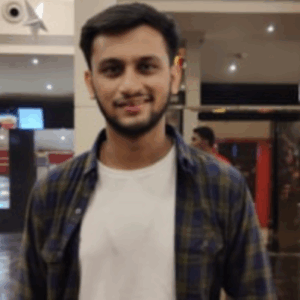 You joined Wisdm as an intern and now, you’ve progressed to being a Software Engineer in the New Initiatives team. What’s your journey and evolution been like?
You joined Wisdm as an intern and now, you’ve progressed to being a Software Engineer in the New Initiatives team. What’s your journey and evolution been like?
Deepak: Looking back, my journey at Wisdm started with a mix of excitement and nervousness. I still clearly remember my interview process, the questions, the technical assessment, and especially the feedback I received from Arunesh Sir. It was detailed, honest, and incredibly helpful.
When I got the confirmation that I’d be joining as an intern, it felt good to see my efforts pay off. But honestly, the first few weeks weren’t easy. I had never worked remotely before, and adjusting to that culture was a challenge. Things like being available for calls, scheduling meetings, or even just talking to someone virtually, I wasn’t used to any of it. I struggled to manage my time and communication well, especially without any prior experience.
But with time I slowly started understanding the flow and got better at managing my tasks and communication.
I also got a clear realization about myself, I was good at executing tasks and implementing solutions, but I wasn’t exactly a well-rounded developer yet. I used to jump into coding without spending enough time researching or exploring the best possible approaches.
I realized that while I could get things done, I wasn’t always taking the time to understand why a particular solution was the best one, or how it could be improved to better meet the end goal. That awareness really helped me grow, and I’ve since been working on balancing execution with thoughtful research.
I still remember my final evaluation clearly, I didn’t clear it on the first attempt. Even though I had completed the assigned tasks, I struggled to answer a few technical questions during the review. It was a tough moment, but not a final one.
I was given a second chance, and I made sure to put in the work, brushing up on concepts, practicing, and improving where I fell short. Being added to the New Initiative Team as a Software Engineer at Wisdm was the result of that second chance and the effort I put in after. Going through that experience taught me the importance of seeking timely feedback and using it to improve. I’ve learned that honest feedback, when acted upon, can make a huge difference in the quality of your work. I feel fortunate to be a part of the New Initiative team, where we have the flexibility to choose the right tech stack for the job, and where using AI tools or other productivity aids is not just allowed but encouraged if they help us work smarter.
And of course, having experienced teammates around makes all the difference. Their guidance, quick feedback, and support have helped me grow a lot, and continue to make the work more meaningful and enjoyable.
What is a typical day at work like?
Deepak: My day usually starts with logging in around 9:20 AM. I like to plan things the day before, so I always maintain a to-do list in my diary. That helps me start every morning with a clear idea of what needs to get done.
By 10 AM, I have my Scrum call with the team. It usually wraps up by 10:30 or 10:45, depending on how much we have to discuss. After that, I take a short break of about 10–15 minutes before diving into the main work of the day. I try to schedule any meetings or calls in the first half of the day so the rest of the time can be used for focused work. Around 2 to 2:30 PM, I take my lunch break, which lasts about 45 minutes. I finish eating in about 15–20 minutes and then go out for a quick walk or drive to stay fresh and avoid that post-lunch drowsy feeling.
By 3 PM or a little after, I’m back at work. If there are any more meetings or calls, I attend those. I also try to spend some time exploring new things in AI, tech, and even marketing, just to stay updated. For that, I mostly rely on social media and Reddit, which I find super helpful for discovering new tools and trends. Around 5:30 to 6 PM, I take a short snack break, and by 7 PM, I log off. But honestly, if I haven’t completed the tasks I had planned for the day, I don’t mind putting in a little extra time.
This is how I spend my working day, a mix of planning, focus, breaks, and the occasional extra hour when needed.
How do you spend your leisure time? Any favorite pastimes?
Deepak: When I’m not working, you’ll probably find me chilling with some good music on — or pet parenting my dog, taking him for walks or drives, which he absolutely lives for.
Who are your closest friends at Wisdm? And who do you turn to for advice?
Deepak: My friends at Wisdm are Abhay & Ishwar . They’ve been with me since my internship and have continuously guided and supported me throughout my journey here. Whenever I need advice whether it’s about code, process, or just how to approach a tricky situation I always turn to Arunesh Sir . His clarity, experience, and guidance have helped me navigate many challenges, and I’m truly grateful for his mentorship.
Who are your role models? How have they influenced your personal and professional lives?
Deepak: One of my biggest role models was Ratan Tata. He was someone I deeply admired not just for his achievements, but for the way he lived his life.
He always stayed humble, even though he was so successful. He believed in doing the right thing, even when it wasn’t the easiest or most profitable choice. And he showed that kind of quiet strength that you don’t always see in leaders today.
I also really looked up to how much he loved animals (especially dogs). You could tell how much they meant to him, and it showed a side of him that wasn’t about power or business, but about care and compassion.
He taught me that being a good person matters just as much as being good at your job. Whether it’s making the right decision at work or being kind to others , those small things make a big difference.
What’s your prediction for the future of technology/design/marketing?
Deepak: I think AI, especially Agentic AI, will be a huge game-changer in the future of technology, design, and marketing. We’re already seeing how powerful AI tools can be in automating repetitive tasks, speeding up workflows, and helping people be more productive. I don’t believe AI will replace humans, but it will definitely change the way we work.
There have been reports of companies trying to replace human roles with AI to cut costs or speed things up. Later, they realized that someone still needs to guide, review, and make sense of what AI produces. In some cases, that lack of human oversight actually ended up costing them more in the long run. For small to medium-sized businesses, I think we’ll see a rise in highly intelligent, productivity-focused tools. These tools will be able to complete tasks that used to take two days in just a few hours or even minutes.
But whether it’s design, marketing, or software development, human intervention will always be valuable. Creativity, judgment, ethics, and emotional intelligence are still uniquely human traits. These are what make the difference between something that works and something that truly connects.
What’s one challenge you faced while working remotely, and how did you overcome it?
Deepak: I wouldn’t say it was a big challenge, but there was one thing that took some getting used to — communication.
Sometimes, it’s hard to explain things clearly over chat. A quick call would be much better, but when you’re working from home, it’s not always easy to get someone on a call right away. Also, there are small home duties or distractions that come up during the day.
It’s not a big problem, but it can make things a bit slower sometimes. I learned to plan ahead, schedule quick calls when needed.
Rapid Fire –
- Favorite food – Biryani and Chole-Kulche
- One country on your travel list – Honestly? I can’t pick just one! There are so many places I’d love to visit, but Japan, UAE, and Thailand are definitely at the top of my list.
- If you got the chance to be a superhero, what powers would you like to have? – If I got the chance to be a superhero, I’d go with Time Travel because who wouldn’t want to relive the good moments. Or the power to reach anywhere in the world in the blink of an eye
- Coffee, tea, or cutting chai? – Filter Coffee
- The best coder at WisdmLabs is… Deepak 😂
- Your favorite project you’ve worked on at Wisdm – Honestly, whichever AI project I’m currently working on! There’s just something about the challenge of dealing with models, prompts, and unexpected behaviors that keeps things interesting.
- The best part of working at WisdmLabs is – Everyone is approachable, open to sharing their knowledge, and genuinely willing to guide you. It makes learning faster, working smoother, and creates a great environment for growth. I’ve never felt hesitant to ask questions — and that makes a big difference.
- Your preferred way to learn new tech skills – reading, videos, or hands-on? – Videos
- Email, or calls—which one do you prefer? – Calls
Social Snapshots
On a relaxing weekend in Pune, Dhawal, Jaydeep, Abhay, along with Rohan and his family went mini-golfing! Something for us to bookmark on our next visit to Pune!
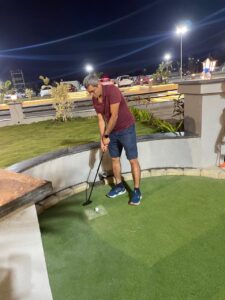
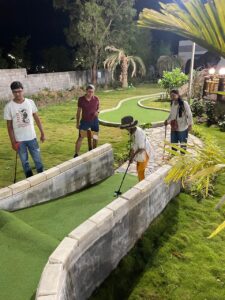
Art Corner
And here’s a contribution to our art archive by Shreya Reddy from the New Initiatives team. Simply splendid!
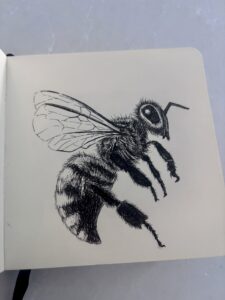
Read & Reflect
On the first sunny weekend of summer, 13-year-old Maya decided she was finally going to open a lemonade stand. Not just for fun, she had a mission. Her neighbourhood park’s old swing set had been taken down months ago, and the city didn’t have the budget to replace it. Maya wanted to raise money to help rebuild it.
Maya was driven by a cause bigger than herself. She drew up a plan, printed flyers, and convinced her friend Jay to help. They even pitched the idea at their school’s cultural committee, gaining a few small donations to start.
But on day one, they ran into problems. The stand was crooked. The lemonade was too sour. And hardly anyone showed up. Jay was ready to give up, but Maya wasn’t.
“We learned something today,” she said, refilling their jug with a better sugar-to-lemon ratio. “Let’s fix it and try again tomorrow. We don’t need to think too far ahead. Let’s only focus on one day at a time.”
She rebuilt the stand from scrap wood in her garage that night, added wheels so it could be moved closer to foot traffic, and made a chalkboard sign that read:
“Help Children Like us Enjoy Swings in the Park!”
The next day, a man on a jog stopped for a drink. He seemed distracted but polite. Maya noticed he looked tired and asked if he was okay. Turns out, his dog had just passed away, and he came to the park to think.
Without hesitating, she offered him a lemonade for free.
“You remind me of my daughter,” he said, smiling. “Kind kid.”
Her empathy had made a connection. He came back the next day with a donation and shared their stand on his neighbourhood WhatsApp group.
Encouraged, Maya and Jay started trying out new things to attract customers. They tried different flavours—lavender, mint, even watermelon. Some flopped. Others were hits. Maya kept a notebook of what worked and what didn’t.
But then came the storm.
A freak summer thunderstorm destroyed their stand overnight. The wood warped. Their posters were soaked. Jay, now certain this was a doomed idea, told Maya he was done.
Maya cried. Then she took a deep breath and got to work. She borrowed tools from her uncle and rebuilt the stand—again. She knew the outcome would be worth her effort and refused to let a single setback define it.
By summer’s end, they had raised enough funds to get a new swing set.
Maya was a MAKER. She saw a problem and decided to do something. She cared deeply, acted consistently, failed often, and kept going. Not because it was easy—but because it mattered.
Outdoor Adventures
Shreya Reddy, who is leading the operations on BizBlaze, is working out of New Zealand. And she was kind enough to share with us a glimpse of the beautiful country she lives in. Last month, she went on a trip to Queenstown, an adventure destination and one of the most scenic places in the country. Here are some pics from her trip (but they’re missing her face though :-p)


